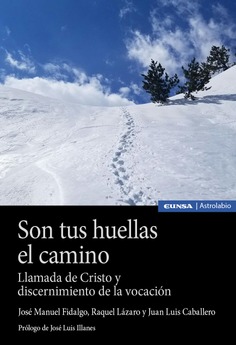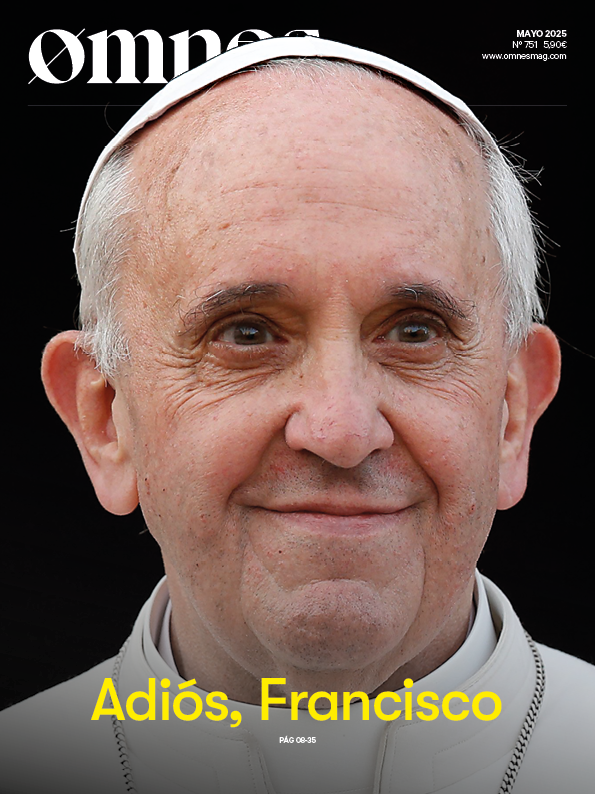How can we guide young people in their vocation? What basic advice should we give to a person who is considering his or her decision to follow Christ in today's world? This is one of the challenges facing the Church in our time.
To understand young people, one must witness their doubts, hesitations, enthusiasm, weariness, weaknesses, failures and fidelity. The Church accompanies young people so that they may find their vocation by developing freely.
Discernment and freedom
The decision to embark on a vocational path raises the need for a discernmentIn most cases, it is not at all obvious. It is important to understand deeply that God's eternal plans count on freedom. He wills - it is his will to create us and treat us as children The personal freedom has a fundamental role to play in choosing and following the path of vocation.
In reality, what is vocation? Vocation is the person himself who has been called by God: called to existence, called to live in Christ, to a fullness of life that can only be reached through paths of love and service.
Vocation is the call of God, unique and personal, that each one of us is. It is an encounter between grace and freedom; an encounter that is lived as a real love story in a concrete life journey.
Vocation for others
Far from being individualistic, the Christian vocation has a special dimension. social y ecclesial at its core. God calls in the Church and, therefore, also in the world. Each one has a vocation of service to others, to the Church and to the whole of humanity. The Church and the world are, therefore, the place of this call. My vocation is for myself; but even more my vocation is for others.
Every person is the fruit of a call, of a vocation. God does not exclude anyone; God calls each person to live a life of love and to attain the fullness of love. This call travels along various paths - with a more or less all-encompassing character of existence - which are concretized in one's own history. All the roads that come from God lead to God, they go to the same place: to heaven, to happiness.
These concrete ways or modalities of Christian life -sometimes called vocations individuals- far from being something closed and programmed in advance, they are part of a trusting dialogue between a father and his child.
We are not programmed
Nothing could be further from the reality of vocation than to understand it as a closed obligation, a program or a preconceived design that does not leave room for the free decision of the person. The divine call not only does not exclude freedom, but its deepest meaning lies in trust and freedom. Vocation really happens at human freedom.
Is my life programmed by God? It could be understood - wrongly - that God's call to follow a path in life, what is usually called vocation, since it is something prior to my decision, leaves little room for my personal freedom.
It is not uncommon for some people to consider an opposition between vocation and freedom. If God shapes and decides my path before I make my own choice - some may think - my task is reduced to hit with this divine plan (to look for signs, to find out my vocation...). I keep, of course, my ability to decide whether to respond affirmatively or negatively to this plan, but nothing more.
A vocation perceived in this way clashes with a sensibility, especially pronounced among young people, that rejects what is imposed: it gives the impression that God has decided for me, has designed and determined my life from eternity. I have hardly any say, there is little room for my decision. And then I have to bear the burden of getting it right (what if I am wrong?) and of responding appropriately (what if I don't get it right?).
This rigid and disfigured perception, taken to the extreme and added to a lack of prayer and trust in God, can lead to experiencing the vocational call as a programming which produces, logically, overwhelm and rejection. The current mentality, rightly, values the protagonism of one's own life.
Doubts and certainties
The decision to embark on a vocational path (whether in the lay or consecrated life, in marriage, in celibacy, etc.) presents the Christian with the need for a discernmentIn many cases, it is difficult and not at all obvious. The person may not feel ready or mature.
The vocational approach raises questions of special personal and Christian significance that should not be avoided: Does my vocation not have to do with my freedom? How can I follow Christ if not out of love and, therefore, with absolute freedom? Why can I not freely shape my own path to follow the Lord?
It is precisely about my way, my How is it possible that I have nothing to say? Has God already decided everything for me? Has he not counted on me? Is he not even going to ask me? I trust in God, but does God also trust me?
Moreover, if vocation is a path that gives global meaning to my life... Why doesn't God show it to me more clearly? Why is it confusing, and not something evident? If the plan for my life is already configured, what happens if I don't get it right and choose a different and wrong path? What happens if I abandon the path I have taken?
True freedom
Where does this apparent opposition between vocation and freedom? Behind this apparent opposition hides an excessively rigid and competitive culture, often insecure, where everything is measured, quantified, controlled and valued.
There is a tendency to value the person-someone unique and unrepeatable created by God-in terms of elements inferior to him or her: professional achievements, intellectual capacities, physical or aesthetic qualities, available resources, success in life, power, money... and the mirage of an illusory self-realization that disfigures and falsifies the true destiny of the person, which is none other than love, self-giving for love. The person is made to love.
God is Father
Moreover, materialistic secularization has abandoned Revelation as a point of reference for life and thought. Over time it has forged a false image of God as a distant and tyrannical being, lawgiver and controller.
With the cultural disfigurements about God, the image of vocation also deteriorates, which comes to be perceived as an external decree, alien or even opposed to freedom. In the face of this internal tendency to perceive vocation in opposition to freedom and the cultural influence of considering God as an intruder-competitor, it is appropriate today to deepen the central role that freedom has in the person, in his relationship with God and in the configuration of one's own vocation.
"There is a plan of God for each one of us; but we are not 'programmed': it would be lowering God to our poor height. We can only program things without agency, and it does not always work out well for us; God, on the other hand, is able to impel our freedom without violating it. God governs human history down to the smallest details; but history also depends on human freedom. This is not a limitation on God's power, for He is the creator of our freedom; rather, it manifests His infinite wisdom and omnipotence, which fulfills His plans not in spite of human freedom, but counting on it. The future is truly open to the action of our freedom" (F. Ocáriz, On God, the Church and the worldp. 122).
God is counting on my freedom
It is important to understand deeply that God's plans count on my freedom. He wants my freedom to play a fundamental role in the path of my vocation, which is the path of my life.
Freedom is not reduced to the ability to choose: also through love, one freely assumes what I have not chosen, even what does not please me. I am also free with nothing to choose, accepting with love what has already been given or chosen. Moreover, God wants my freedom configure my own vocational path in some way. When I decide, I me I decide myself. It is a profound mystery where grace and freedom, eternity and time converge.
Vocation is, of course, a eternal plan of God. It has its origin in God, not in me. But God does not univocally predetermine the plan without counting on my freedom, but rather - even if we do not fully understand it - he opens it in eternity to my decision in time. Because God wants free children. Freedom is a Father's trust in his children.
To follow Christ concretely - not in the abstract - demands that each person leave his or her hiding place and take control of his or her own life. Without freedom, one cannot love. And, in the end, that is what it is all about: love. Vocation is always a call to personal love, a "come and follow me," which comes from God in Christ and out of love for others. Today, perhaps more than in other times, it is necessary to strongly emphasize the personal and free aspect of vocation, a profoundly Christian element, rooted in the Gospel.
God chooses and eternally calls each person by name - each one is unique - and counts on them for a mission of love on earth, born of the needs of Christ's heart in his Church and in the world.
A call that echoes eternally in my intimacy, as an echo of my personal creation. A vocation that is myself, someone unique and unrepeatable. A call that has its origin in God, who welcomes in eternity my own decisions in life: mystery of the confluence of grace and freedom, time and eternity. A response that is my free acceptance of being who I truly am (and will be), before God and before others, with joy, humility and fidelity.
Your footsteps are the way. Christ's call and discernment of vocation

You can get the book here.
Professor and chaplain of the University of Navarra.








